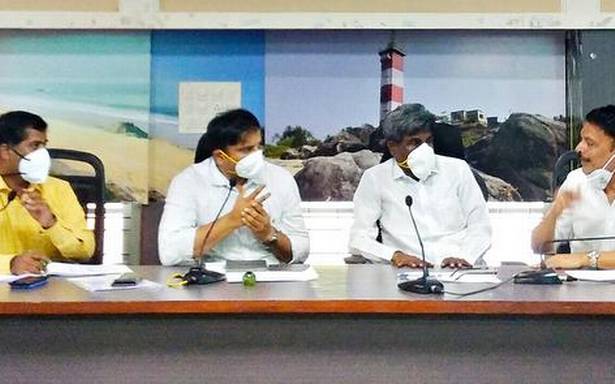WASHINGTON : The World Bank suspended funding for dozens of projects in Afghanistan Tuesday, citing questions over the legitimacy of Taliban rule.
The Washington-based institution has committed around $5.3 billion for reconstruction and development projects in Afghanistan since 2002 through its International Development Association that helps the world’s poorest countries.
As of April, the development association had 12 active projects totaling $940 million in commitments, the bank said in its latest update earlier this year. Separately, its Afghanistan Reconstruction Trust Fund had 15 projects with $1.2 billion committed, it said in its April update.
Under its policies, the World Bank said it cannot disburse funds when there is no agreement by its 189 member countries on whether a country has a legitimate government.
“We have paused disbursements in our operations in Afghanistan and we are closely monitoring and assessing the situation in line with our internal policies and procedures,” a World Bank spokeswoman said.
Most of the World Bank’s support in Afghanistan—about $4.8 billion—has come in the form of grants, while $436 million has been in the form of no-interest loans.
To help rebuild the country, the World Bank also created and administered the Afghanistan Reconstruction Trust Fund, which has been supported by funding from 34 donor countries.
The money has been allocated to a variety of projects, including improving urban water systems, building vocational schools and responding to the Covid-19 pandemic.
Earlier this year, the World Bank said the trust fund was the “largest single source of funding for Afghanistan’s development, financing up to 30 percent of the country’s civilian budget and supporting core functions of the government.”
The funding has been a crucial lifeline for Afghanistan, one of the world’s poorest nations. The country’s economy is otherwise heavily dependent on agriculture and illicit drugs. The largest category of exports to the U.S. in recent years has been rugs.
The collapse of the government in Afghanistan and the Taliban takeover have left international institutions with no good options, said Scott Morris, a senior fellow at the Center for Global Development and a former Treasury official.
“We can sanction the hell out of them, and then pursue a humanitarian strategy at the borders,” he said, which wouldn’t be good for people still within the country in desperate need of aid. But if members of the international community “recognize a Taliban government and let the money flow, how much horrible behavior are we willing to tolerate from that government before we attempt to shut it off again?”
The World Bank completed an evacuation of its Kabul-based staff to Islamabad last week. It said it was considering how to continue development efforts in Afghanistan even as it put a hold on aid.
“Together with our partners we are exploring ways we can remain engaged to preserve hard-won development gains and continue to support the people of Afghanistan,” the World Bank said in a statement.
The International Monetary Fund, which like the World Bank is based in Washington and collectively owned by member governments, said earlier that Afghanistan would be ineligible for IMF loans until a government is recognized.
“As is always the case, the IMF is guided by the views of the international community,” said an IMF spokesperson. “There is currently a lack of clarity within the international community regarding recognition of a government in Afghanistan, as a consequence of which the country cannot access” IMF resources such as loans to the government.
Other countries that have recently lost access to World Bank and IMF programs have been Myanmar and Venezuela.
In Venezuela, two men claim the presidency following disputed elections in 2018, with the world’s countries split on whose government is legitimate. As a result, Venezuela has been locked out of receiving any aid or loans from the IMF and World Bank; the country was even rejected in asking for Covid aid.
In February, the World Bank and IMF cut off funding to Myanmar after a military coup in the country. The bank suspended disbursements to Myanmar but put in place enhanced monitoring of projects that were already under way.



